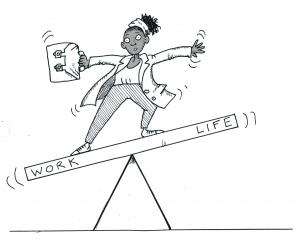SWU Blog: Mental Health Awareness Week 2021
The Social Workers Union fully supports Mental Health Awareness Week which runs from Monday 10 May to Sunday 16 May 2021. This week is an opportunity for people to talk about all aspects of mental health. The Mind campaign focuses on helping to create a movement for change that fights for fairness, for respect, and for life-changing support; and the Mental Health Foundation campaign focuses on providing help and advice.
This year’s theme is nature. Many people have used being out in nature as a form of self-care during the COVID-19 pandemic. Connecting with nature can help to improve our mental health and wellbeing. Read more here about how the BASW Students & NQSW group is encouraging members to get involved with their 'How nature nurtures you' campaign this week.
The past year has been a difficult one, especially for our members working under the dual strain of a worldwide pandemic and the government’s continued programme of austerity. Mental Health Awareness Week is now more important than ever because millions of us have experienced issues with our own mental health or have seen loved ones struggle during this pandemic. SWU and BASW remain committed to supporting the wellbeing and professional development needs of social workers.
Below you can read more about the toolkit developed by Bath Spa University, SWU, and BASW to improve the context and experience of social workers in the workplace, and a passage from the recently published book How to Survive in Social Work reflecting on pressure in social work. BASW has also launched an online Professional Support Service for members which aims to support the wellbeing and address practice concerns of social workers throughout COVID-19.

Social Worker Wellbeing and Working Conditions: Good Practice Toolkit
Who is this toolkit for?
This toolkit is aimed at social workers in practice, social work supervisors, workforce development leads, managers, and leaders. For social workers in practice, it should help you be more informed and empowered to look after yourself better at work; recognise when you need support and how to access it; develop knowledge and skills to influence your organisation; and know your rights and what you should expect from your employer. It was in the context of the recognition of stress and the need for solidarity in dealing with the challenges it brings that SWU and BASW decided to see what could be done to address the situation.
What is clear is that there is much to be concerned about in the contemporary social work world and the impact of wellbeing and mental health. However, there is also much to be positive about, as we have seen, in terms of the value of what we do in social work as significant contributors to a humane society, our professionalism, our (potential for) solidarity and, of course, the problem-solving skills that are at the heart of our practice.

Stress and thriving – building our wellbeing support
“If we as social workers are to not only survive, but actually thrive, then we need to make sure that we are keeping our pressures within manageable limits, while also supporting others in doing so. The more mutual support there is, the greater the foundations for best practice will be.
By supporting one another, we help to break down the harmful idea that stress is the sign of a weak individual. We need to see it as a sign that there is something wrong that needs attention, but not necessarily wrong in the individual – we need to look at it more holistically.
It can also be helpful to think about stress as it relates to the citizens that we serve. Traditionally, the focus has been on occupational stress, as if problems from excessive pressures arise only in the workplace. There is much to be gained in terms of direct practice to consider explicitly to what extent stress is playing a part in the lives of clients with a view to potentially identifying ways of reducing pressures until they reach a manageable – and, ideally, comfortable – level.
In terms of both our own pressures and those of other people we support, we should also be aware that there is a positive side to pressure when it is not allowed to reach harmful levels. We mention this because we are aware that people who have found themselves in stressful situations will often avoid pressure as much as possible thereafter – a sort of once-bitten-twice-shy sort of approach. This can then prove to be very self-limiting – self-disempowering in fact. It acts as an obstacle to the motivation and satisfaction to be gained from a reasonable level of pressure.
After someone has been through a very stressful period, whether or not that involves sickness absence, it is understandable that it can take a while to get strength and confidence back on track. However, there is also a danger that people can get stuck in a low-pressure approach to life that they find frustrating and dispiriting (and, ironically, the pressures of this can lead to stress and mental health issues). What is needed, then, is a balanced approach to pressure – not too much, not too little. That will then serve as a firm basis for working towards thriving.”
Thompson, N & McGowan, J (2020) How to Survive in Social Work, Avenue Media Solutions, Wrexham
Join the Mental Health Awareness Week conversation on social media using the hashtags: #MHAW #MentalHealthAwarenessWeek #FightForMH #BASWnaturenurture
You can also read the Mental Health Foundation’s top tips on connecting with nature to improve your mental health.